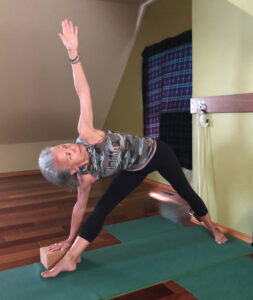Not so long ago, a friend struggling in his relationship with his significant other asked me “How do I know if it is time to leave a relationship or to stay?” An obvious answer to his question would be “Leave when the relationship is harmful rather than helpful.” However, we all know relationships (probably some of our own) where harmful behaviours (abuse, addiction, etc.) prevail.
To my knowledge, none of us has perfected our behaviour to the point where we are never negligent, needy or even down right nasty to others. We all have moments when our buttons get pushed and our responding behaviour expresses our vulnerabilities rather than our strengths. My friend’s question illustrated the need for a guiding principle about relating to others that could inform our decisions regarding staying or leaving.
Because humans are social beings, we learn and grow as a result of the relationships surrounding us. In a best-case scenario, our positive growth and transformation emerges from positive interactions with others. However, some of my greatest life lessons did not occur within happy relations or circumstances—dysfunctional family of origin dynamics, power struggles, defensive reaction patterns, etc. Even so, I eventually transformed into a happier, healthier, more humane person. In hindsight, I believe knowing one’s decision point—defining one’s boundary for staying or leaving a relationship—is vital not just for one’s wellness but also for the wellness of the other person.
Here is what formed my thinking about relationship boundaries. I believe the universe is not merely a random happening but actually exists for a reason and operates in an orderly fashion. Therefore, I feel comfortable accepting the following statement as reality—every experience and every person we encounter comes to us for a reason. For me, this further simplifies into the following—we attract the people and circumstances we need to create the life we want. Our life work is to become aware of what we want and to understand the reason we are having the experience and/or the relationship in question. Asking myself, “Why me?” “Why this?” “Why now?” enables me to open my awareness to my unconscious, conditioned responses—how I am responding right here and right now. It further provides me the opportunity to ponder whether those ways of responding are who I want to be and how I want to behave.
Let me give you an example. I am currently involved in several collaborative projects, where diverse thinking and ways of behaving are constant. Of course, it is exactly this diversity that enhances the creativity and innovation of everyone involved, which is what we all want. However, diversity also presents the opportunity for misperceptions and misunderstanding, which can lead to judgments, hurt, defensiveness, resentment, impatience, anger, abuse, etc. These challenging responses tend to emerge when our egos—our sense of self-esteem or self-importance—are operating. Typically, when we are speaking ego-to-ego rather than spirit-to-spirit, our unconscious need to be right or to be in control is more important than the truth. When ego dialogues become the predominant way of conversing in relationship with another, important questions to ask are “Why am I in this relationship?” “What do I need to learn?”
To come full circle in answering my friend’s question “When is it time for me to leave?” my guiding principles are:
1) have I learned from the relationship what I need to understand about myself, and
2) have I transformed my own ego responses into respectful healthy communication.
In essence I am asking myself, “Am I aware of my ego response that ignites drama instead of unveiling truth?” “Has my awareness and understanding altered my behaviour in ways that are healthier and more helpful to the relationship?” When I change aspects of myself, I change how others respond to me. That is, if I am not defensive, impatient or angry, there is no trigger created on my part for them to respond in like fashion.
Having taken responsibility for transforming my unhealthy ways, if the other person is unwilling to do the same, then I would consider whether it is in my health and heart’s best interest to remain in relationship.
For your health and heart sake, “What is your guiding principle for staying in a challenging relationship?”
For more information on relationship transformation, click here.





